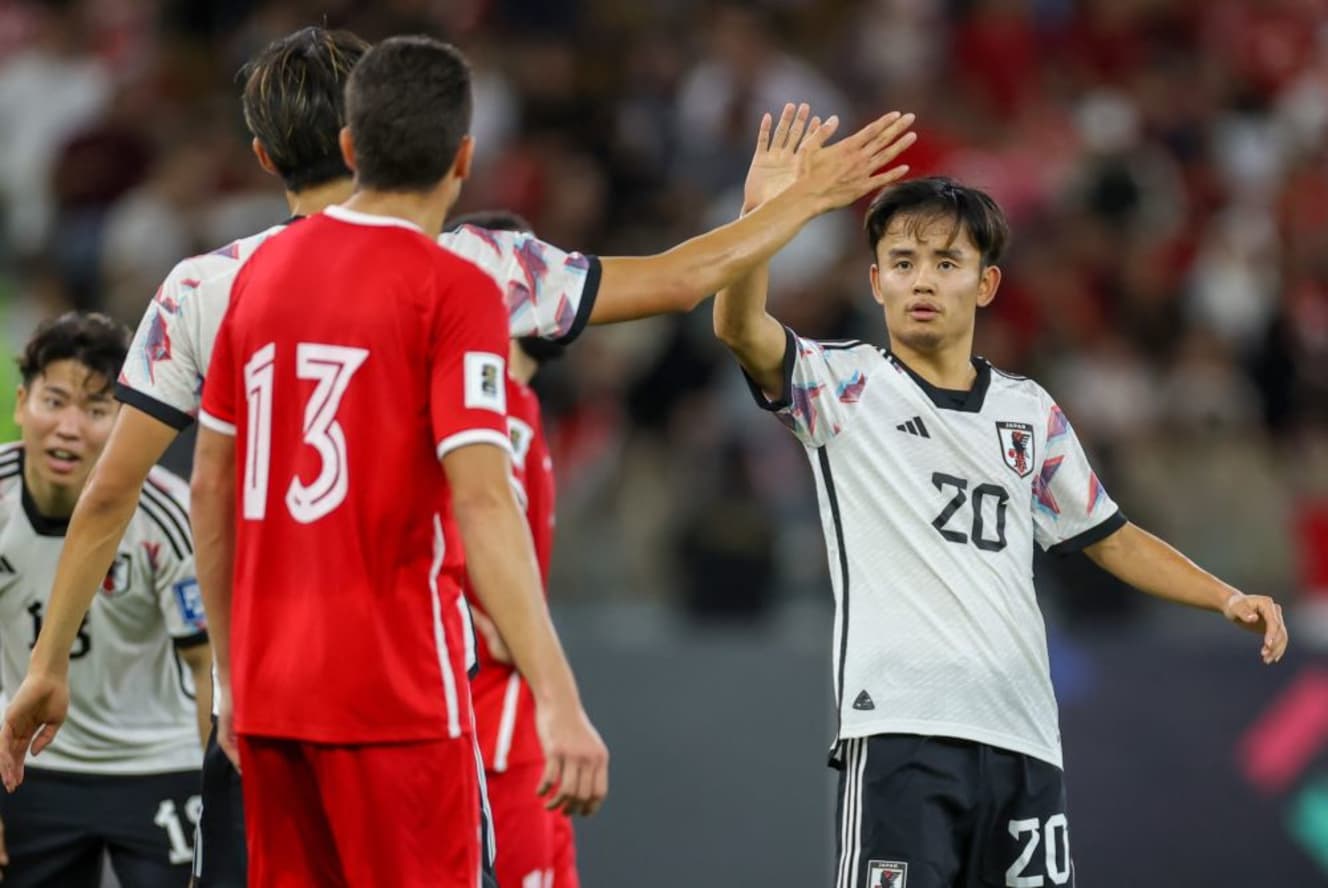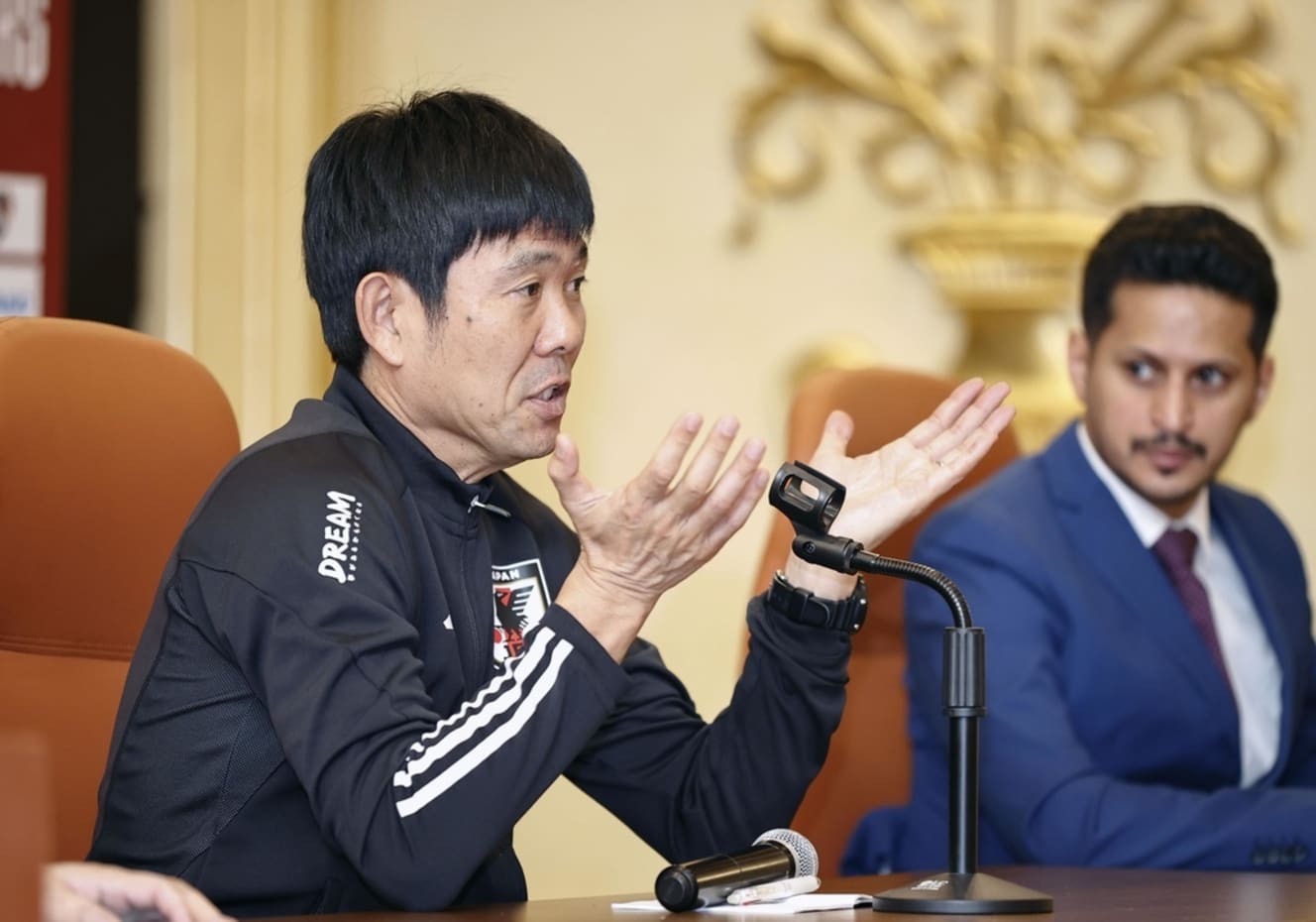Estimated 200 Million Yen for TV rights fee for Syria match? Behind the scenes of the humiliation of Moriyasu Japan, the strongest team in the history of Japan, for the first time in its history “without live TV broadcast”.

The Moriyasu Japan soccer team is in great form, with no enemies in sight. The team also showed off its offensive prowess in a 5-0 victory over Syria in the second round of the Asian qualifying round for the World Cup on November 21 in Saudi Arabia, a country that has not won in five matches.
In this match, the Syrian side offered more than 100 million yen for the broadcasting rights, using the broadcasting rights as a shield. Kozo Tajima, 66, chairman of the Japan Football Association (JFA), was adamant, “Even if they ask us to pay hundreds of millions of yen, we can’t do it,” since the kickoff time in Japan was at 11:45 p.m. on January 21 (Japan time)! I can’t do it,” he said. This was the first time since the Asian qualifiers for the 1998 World Cup in France, when Japan made its first appearance in the tournament, that there was no live TV broadcast or paid video streaming for the domestic audience, an unprecedented and unusual situation. What on earth is going on?
Even 30 million yen is too much ……
With eight consecutive wins, the longest winning streak in national team history, Moriyasu Japan’s strength is real. Normally, he should be laughing all the way to the bank, but Tajima has been in a bad mood for some time now. There were no TV broadcasts or even live broadcasts of the match against Syria. The reason for this is the complete lack of live broadcasts.
Tajima said, “They are trying to make money from the broadcasting rights (for the second qualifying round for the World Cup). From what I have heard, it is true that the Syrian Association has been trying to raise the price. (I don’t think it’s good that the market price (for broadcasting rights) has collapsed. There is a fair price. So how much is the more than 100 million yen that the Syrian Association offered? A director in charge of soccer at a commercial broadcaster revealed, “What the Syrian side has said is the last time they were willing to pay us.
What the Syrian side is saying is that the broadcasting rights fee is comparable to the fee paid for the last time the Brazilian national team came to Japan and played a match against the Japanese national team in June 2010. This is an unbelievable amount of money. This is an unbelievable amount of money. It is less than half of what the Syrian side claims, and even 30 million yen is too much.
According to the sources, the broadcasting rights fee for the Brazilian game was an estimated 200 million yen. On the other hand, the Japanese TV stations were expecting to pay less than 30 million yen for the broadcast rights for the Syrian match. The gap between the two sides’ desired amounts was too large.
Since the 1998 Asian qualifying round in France, when Japan made its first appearance in the World Cup, live TV broadcasts of national team games, even late at night, have been a regular occurrence, and have been one of the essential items that have continued to support the popularity of Japanese soccer.
While some people say that there is no need to pay an uncommonly high amount for broadcasting rights, the aforementioned director reveals, “Last year’s World Cup was a great success, and we were able to show the matches against Germany and Spain.
After beating Germany and Spain in last year’s World Cup, Moriyasu Japan’s TV ratings have remained stable at a high level. This is proof that the public wants to watch Japan. I think that if only the JFA could have negotiated the broadcasting rights fee, all the stations would have wanted to broadcast the match against Syria,” he said, expressing his frustration at not being able to do so despite having been on standby to do so.
Regarding the lack of TV broadcast of the Syria match, Kubo Takefusa (Real Sociedad), on behalf of the players, said, “If both countries had shown some kind of kindness to each other, the Japanese people would have been happy to see the match. This led to an unusual situation in which he spoke on behalf of the players, saying, “I would like to see Japan’s national team matches played on terrestrial broadcasting as a matter of course.
In the case of the World Cup, the broadcasting rights are usually held by the national associations of each country. In the case of the Asian qualifiers for the second round, which Japan is currently competing in, each national association owns the broadcasting rights for home matches, and each association is free to decide the price. However, unlike the other five continents, in Asia, once a team advances to the final qualifying round, the Asian Football Confederation (AFC) collectively owns the rights on the grounds of “coexistence and co-prosperity in Asian soccer. For some reason, the AFC decides the broadcasting rights fees, which should be left to the individual associations. The AFC’s aim to make a profit from the broadcasting rights is transparent.

The broadcasting rights fee for soccer is getting bigger and bigger, and the ability of each association to negotiate the price is being questioned, as they want to enrich themselves financially as much as possible. Not only Japan, but all associations have contracted agencies to handle the negotiations, with Dentsu handling the negotiations in Japan, and PRO, an agency in the United Arab Emirates (UAE), handling the external negotiations in Syria, where the soccer association is not functioning due to the civil war.
At an official press conference held on November 20, the day before the Syria match, the CEO of PRO (Mr. Youssef) suddenly appeared at the press conference and made the following statement regarding the broadcasting rights fee issue.
He said, “We have lowered the price by 30 to 40% compared to the Asian qualifier for the Russia ’18 tournament (Syria vs. Japan).
In other words, he claimed that the JFA was responsible for the breakdown of negotiations. In fact, it was Dentsu again that was negotiating the broadcasting rights.
In the renewal of the sponsorship contract that took place in March ’23, the JFA signed a partnership agreement with Dentsu for eight years, through 2030. The second Moriyasu Japan team’s domestic tournaments are also led by Dentsu.
Until now, Dentsu has taken the lead in negotiations for broadcasting rights fees for major international tournaments, but this is not the case anymore. In the case of last year’s World Cup in Qatar, the TV stations alone were initially trying to sign a contract for broadcasting rights, but in the end, the price could not be lowered and the negotiations could not be settled. As a last chance, Dentsu approached ABEMA, an Internet TV service, and managed to broadcast the World Cup tournament live.
It is an undeniable fact that Dentsu’s support was instrumental in JFA’s rapid development. On the other hand, Dentsu’s influence is not as strong as it used to be after it was reported that the company was involved in a financial scandal involving the Tokyo Olympics. Following last year’s World Cup, the JFA has not been able to exert its power with regard to negotiations for broadcasting rights fees.
The Asian qualifiers for the World Cup are hosted by the AFC. President Tajima is also a member of the AFC Board of Directors and, on behalf of the AFC, also serves as a member of the FIFA Board of Directors.
Tajima has repeatedly insisted at AFC meetings that his country’s associations should be given the right to freely pay broadcasting rights fees for the final qualifying rounds, as is the case on other continents .That is not true,” was the reply, and President Tajima’s insistence has been brushed aside, leaving a parallel line of argument.
It is expected that Asian countries will continue to “copy” the methods that the JFA has developed with the assistance of its agents, and demand high broadcasting rights fees for games played in enemy countries. Therefore, it is quite possible that JFA will not be able to broadcast a match away from home that decides who qualifies for the World Cup. The JFA is now facing a major turning point, as Dentsu, on which it has been relying heavily, no longer has the divine power it once did.
PHOTO: Jiji Press (1st photo), Kyodo Press (2nd photo)